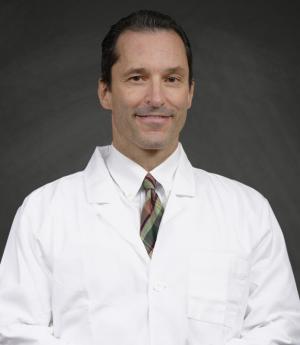Combination of treatments benefits COVID-19 patients
Work is underway to find treatment options to combat COVID-19, said Beebe Healthcare infectious disease physician Dr. Scott Olewiler.
“There’s no proven cure and no FDA-approved drug yet; there’s been no time,” he said. “We’ve only known about this virus for five months, but I do feel we’re coming out of the tunnel, and the light is in front of us.”
Olewiler said multiple treatment studies have been conducted during the past several months, and some are promising. Treatments are not the same for everyone; each case is individual, he said.
“The vast majority of people who have COVID never see a doctor,” he said. “The case resolves on its own, and the person recovers at home. Another patient group may need oxygen and then go home after a couple days. Only a small minority of people have serious disease or die.”
Combination treatments working
Olewieler said just two days before Beebe’s first COVID-19 patient was admitted March 20, Temple University set up a conference with Chinese physicians and investigators that was very helpful.
“The Chinese physicians were very enthusiastic that we should use steroids to suppress the immune system,” he said. “That’s not a new idea for people with severe tuberculosis or lung infections, and AIDS patients. The immune response to a germ can be worse than the germ itself, and it’s clear in this as well.”
Olewiler said the use of steroids in severe cases has shown remarkable improvement for patients on oxygen. Another immunosuppressive drug, tocilizumab, which is used for rheumatoid arthritis, has improved the oxygenation of several patients in just a couple days, he said.
“It’s a safe drug because you get only one dose,” he said. “It’s rather expensive, and it’s an immune modifier, so you can’t treat anyone with another bacterial or fungal disease.”
Beebe has also been using convalescent plasma therapy to treat moderately sick COVID-19 patients, Olewiler said. The treatment involves transfusing plasma taken from recovered COVID-19 patients, who have antibodies against the virus, into sick patients.
“We have treated a couple people at the hospital with this after using other treatments, and they showed remarkable improvement after two days,” he said.
Olewiler said anyone who has recovered from a proven COVID-19 infection can go to www.delmarvablood.org/cpdonor or call 1-888-8BLOOD8 to see if they can donate plasma.
“People aren’t just given one treatment; they often receive a combination of steroids, antiviral drugs, immunosuppressives and plasma. Most patients get them at the same time, so when they’re better it’s impossible to know what to attribute it to, but plasma does have a small effect, and studies are ongoing,” he said.
The drug remdesivir, which has a chemical that stops a virus from replicating, is also showing promise. A U.S. trial of 1,000 patients found the use of remdesivir shortened hospital stays by four days, he said.
“I’m convinced it’s most beneficial if given before a ventilator,” Oleweiler said. “We want to use it early in the infection, but supply is extremely limited. We get an allotment through DPH and carefully select who needs the drug the most.”
Hydroxychloroquine ineffective
Olewiler said he expects doctors will abandon the use of hydroxychloroquine. He said a French author in February published a small study of 26 people with COVID-19 who were treated with hydroxychloroquine that claimed 100 percent of them resolved with undetected symptoms.
“But that got magnified, and people thought it was a cure,” he said.
Subsequent studies have been unable to replicate those results, Olewiler said. In a May 27 press release, the French government stated hydroxychloroquine should not be prescribed for COVID-19 patients whatever the severity of the infection. The release stated that, after several studies, current data shows no benefit of the drug, and that there is also a cardiac toxicity, particularly if used with the drug azithromycin.
“The drug is no longer used at Beebe,” he said. “It’s fair to say that’s not where our energy should be.”
Age is primary risk factor
Olewiler said acquiring the virus has nothing to do with having diabetes or being obese, but those risk factors determine how sick you get if you do get COVID-19. The biggest risk factor for severe disease or death is age.
“I know of only one or two people under age 20 who have died,” Olewiler said. “Each decade after age 50, the mortality risk doubles. Advanced age is a huge risk factor.”
The mortality rate is 1 percent for patients aged 50-60, 4 percent for patients aged 60-70, 8 percent for patients aged 70-80, and 15 percent for patients over age 80, Olewiler said.
“In Delaware, those over age 65 are three-quarters of all deaths, while those aged 50-65 are 15 percent of deaths,” he said, meaning people over age 50 account for about 90 percent of all deaths.
Other risk factors that can exacerbate COVID-19 are cardiovascular disease, diabetes, high blood pressure, lung disease and cancer. Patients with several risk factors are tougher to treat, he said.
Fear and heartbreak for caregivers
Olewiler said caring for COVID-19 patients is taking an emotional toll. Plus, not all the facts are known about the virus and how well it’s transmitted, so caregivers fear they’ll get it.
“It’s been hard,” he said. “It can break your heart to see people come in with risk factors and go downhill in just a couple days and eventually die. It’s hard to see that. I got into this job because I want to make people better.”
Olewiler said staff are very appreciative of thank-you signs posted throughout the community. Notes from children with messages of thanks and Bible verses cover a wall of the hospital, he said.
“I just stood there and stared at them and got tears in my eyes,” he said. “I got a letter from a Lewes resident I don’t even know just to thank me; it’s unbelievable. You get one message like that, it’ll pick you up for a month. I want to say thank you back. Those thanks are what’s keeping us going.”


















































